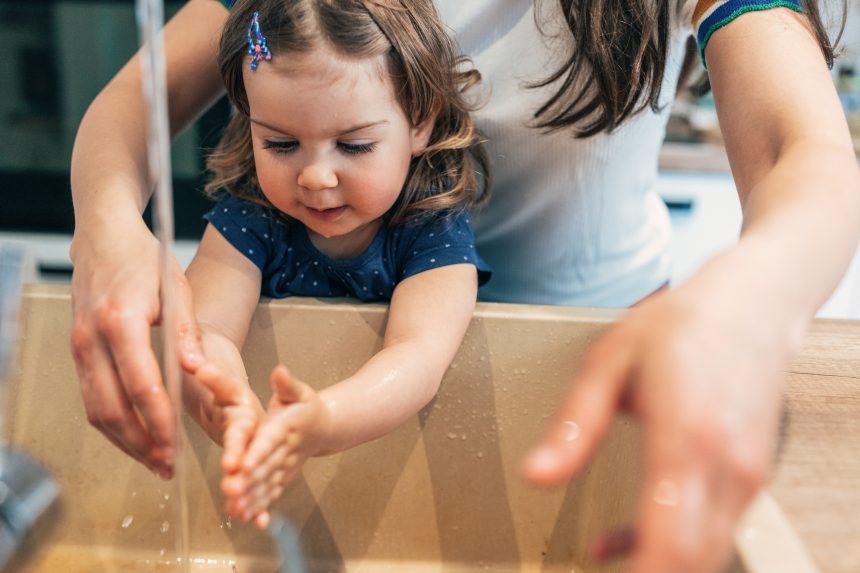Parvovirus B19, also called human parvovirus, is highly contagious and can cause symptomatic or asymptomatic infection. High-risk groups include children and individuals who work closely with them, like teachers and daycare workers.
Here’s what you need to know about the virus and how to protect yourself and your family.
What is parvovirus B19?
Parvovirus B19 is a respiratory virus that infects humans, sometimes referred to as fifth disease. It spreads through respiratory droplets, making close-contact environments like schools, daycares, and households hotspots for transmission. Symptoms can include a “slapped cheek” rash, fever, cough, headache, sore throat, and joint pain. Some infected individuals may not show any symptoms.
Who’s most at risk
Young children
Children, especially those in school or daycare settings, are at a higher risk of contracting parvovirus B19 due to their vulnerable immune systems and close interactions with peers.
Pregnant people
Individuals who are not immune to the virus may contract it during pregnancy, potentially leading to complications for the fetus. Most pregnancies where the mother is infected do not result in complications, according to CDC data.
Immunocompromised people
People with weakened immune systems, such as those undergoing chemotherapy or organ transplant recipients, are at a higher risk of severe infection and complications from parvovirus B19.
How to protect yourself and your kids
Practice good hygiene
Regularly wash hands with soap and water, especially after coughing, sneezing, or touching surfaces. Use alcohol-based hand sanitizer when soap and water are not available.
Avoid close contact with infected individuals
Avoid close contact with infected individuals, especially in household settings. Limit contact with others if diagnosed with parvovirus, and consider keeping children at home during outbreaks.
Shore up your immune system
Maintain a healthy immune system through a balanced diet, regular exercise, and sufficient rest to help fight off infections effectively.
Speak up and ask questions
Inquire about illness management policies at your child’s school or daycare center. Stay informed on outbreaks and monitor for symptoms in your child.
When to see a doctor
If you or your child are at high risk for complications, consult with a healthcare provider. Seek medical advice if symptoms of parvovirus B19 develop and notify your healthcare provider if there’s a known exposure and someone in your household is at high risk.






